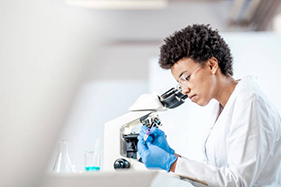Cancer is a multifaceted disease that impacts millions globally. Gaining a clear understanding of cancer, how it develops, and the treatments available can empower you to take proactive steps for your health.
What is Cancer?
Cancer arises when cells in the body begin to grow uncontrollably. Unlike normal cells, which grow, divide, and die in a regulated manner, cancer cells continue to grow and divide without control. This uncontrolled growth can lead to the formation of tumors (masses of tissue) or spread to other parts of the body through the blood and lymphatic systems. Cancer can originate in any organ or tissue and can vary in its growth rate—from rapid and aggressive to slow and indolent.
Symptoms to Watch For
While symptoms can vary depending on the type and location of cancer, common signs to be aware of include:

- Lumps or Swelling: Unexplained lumps or swelling in any part of the body should be evaluated. These could be indicative of tumors or abnormal growths.
- Changes in Skin: Look for changes in existing moles or warts, or new growths on the skin. Skin cancer may present as irregularly shaped moles or sores that don’t heal.
- Unexplained Weight Loss or Gain: Sudden or significant weight loss or gain without a clear cause can be a symptom of cancer.
- Persistent Cough or Hoarseness: A chronic cough or changes in voice that persist for more than a few weeks could signal cancers such as lung or throat cancer.
- Changes in Bowel or Bladder Habits: Persistent changes in bowel movements or urinary habits, such as blood in urine or stool, can be signs of cancer affecting the digestive or urinary systems.
Risk Factors
Understanding risk factors can help in taking preventive measures. Key factors include:
- Lifestyle: Certain behaviors can significantly increase cancer risk. Smoking is a major risk factor for many types of cancer, including lung and throat cancers. Excessive alcohol consumption, obesity, and a sedentary lifestyle are also linked to higher cancer risks
- Environmental: Exposure to certain environmental factors can increase cancer risk. This includes radiation, such as from excessive sun exposure or medical treatments, exposure to chemicals (like those found in pesticides or industrial pollutants), and general air pollution.
- Genetic: A family history of cancer can increase your risk. Inherited genetic mutations, such as those in the BRCA1 or BRCA2 genes, are known to elevate the risk of breast and ovarian cancers.
Early Detection and Treatment

Early detection is crucial for improving the odds of successful treatment. Regular health screenings and being vigilant about changes in your body can help catch cancer at an early, more treatable stage. Self-exams, such as breast or testicular self-exams, along with routine screenings like mammograms, colonoscopies, and Pap smears, play an essential role in early detection.
Common Treatments
Cancer treatment varies based on the type and stage of cancer, as well as the patient’s overall health. Common treatment modalities include:
Surgery: This involves the physical removal of cancerous tissue from the body. Surgery can be curative if the cancer is localized and has not spread to other areas.
Radiation Therapy: High-energy rays, such as X-rays or proton beams, are used to target and destroy cancer cells. Radiation therapy is often used to treat localized cancers or to shrink tumors before surgery.
Chemotherapy: This treatment uses powerful drugs to kill cancer cells or stop them from growing. Chemotherapy can be administered orally or intravenously and is often used in combination with other treatments.
Immunotherapy: Immunotherapy boosts the body’s immune system to better recognize and fight cancer cells. This approach can be particularly effective for certain cancers and may be used alone or alongside other therapies
- Hormone Therapy: For cancers that are sensitive to hormones, such as breast or prostate cancer, hormone therapy works by blocking or altering the effects of hormones that fuel cancer growth.
- Targeted Therapy: Targeted therapies focus on specific molecules or pathways involved in cancer cell growth and survival. These drugs are designed to interfere with cancer cell mechanisms, offering a more precise treatment approach.
Stay Proactive About Your Health
Understanding cancer, recognizing its symptoms, and taking preventive actions can significantly impact your health outcomes. Regular medical checkups, staying informed about your health, and maintaining a healthy lifestyle are essential steps in managing cancer risk and enhancing overall well-being.
Take charge of your health today—be proactive, stay informed, and consult with healthcare professionals to ensure you’re doing everything you can to prevent and address cancer effectively.


